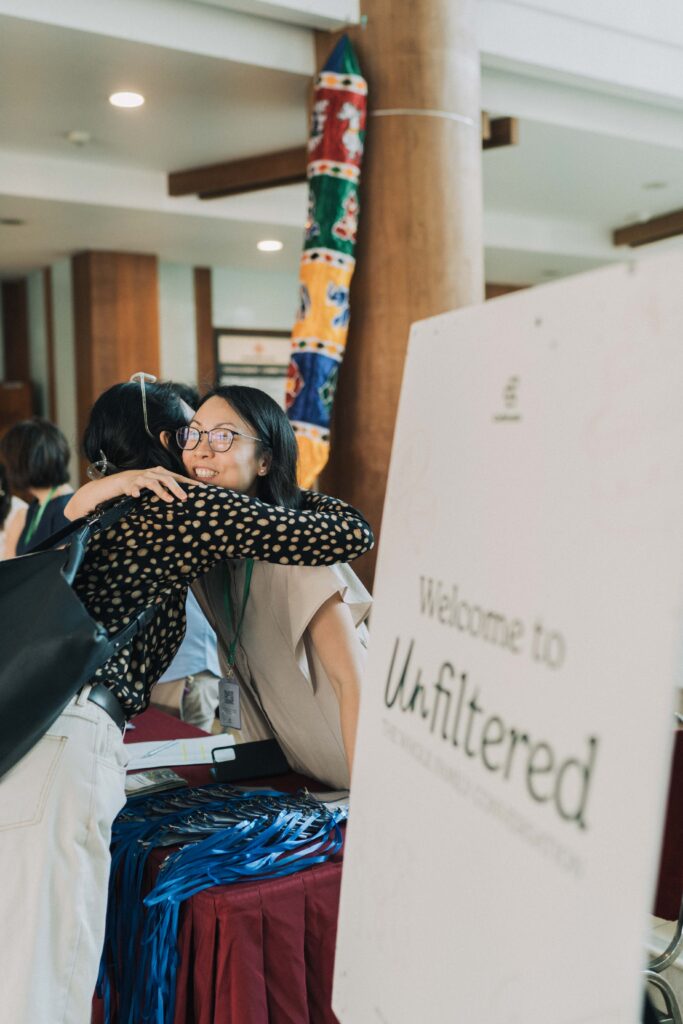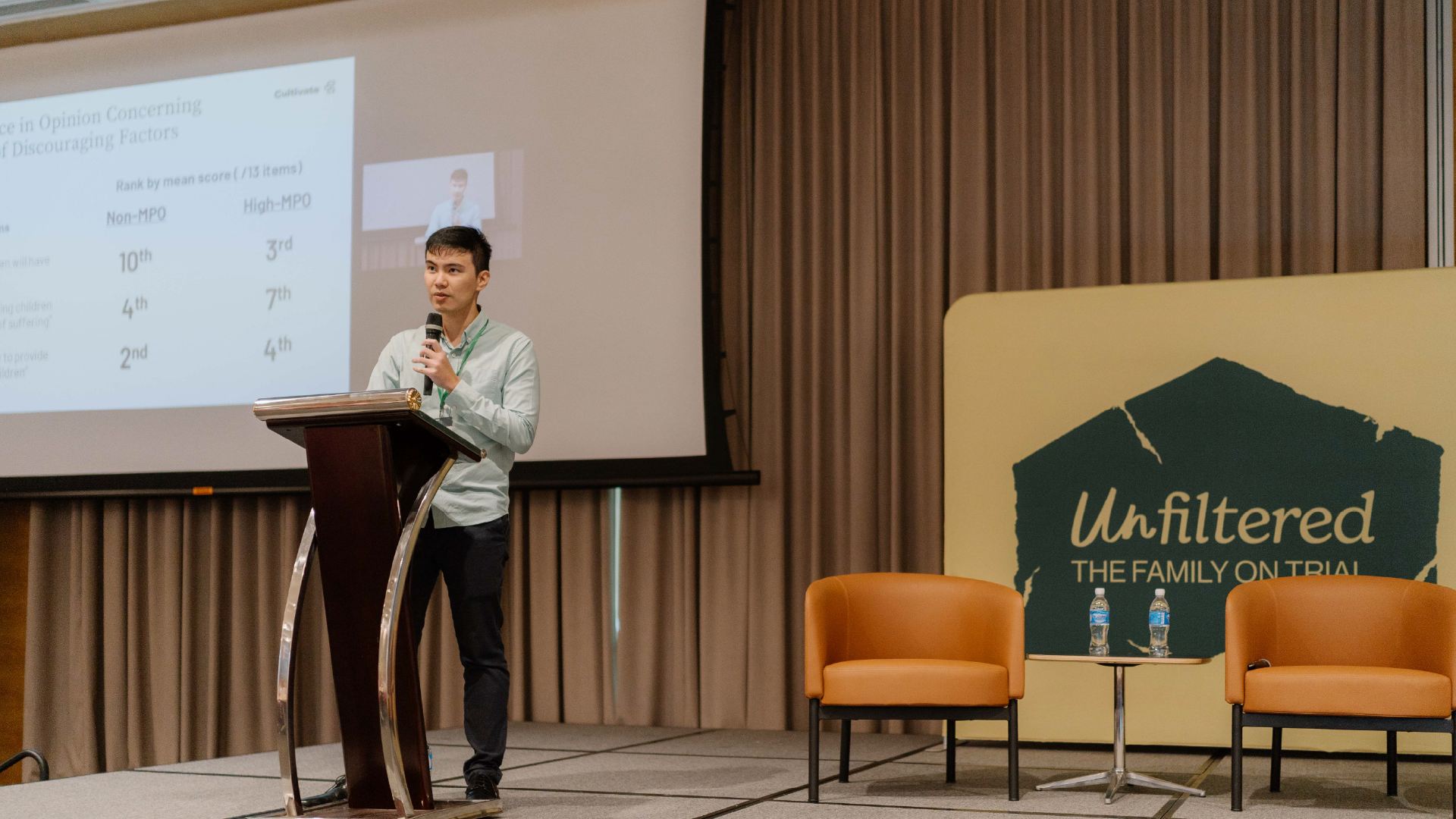Cultivate’s inaugural conference, “Unfiltered – The Whole Family Conversation”, took place on 14 November 2024 at the Grassroots Club.
We featured three panels on topics related to family – marriage, children and intergenerational bonds – with speakers who shared their personal and professional insights. It sought to deepen conversations on unseen and upcoming issues on these fronts.
The day kicked off with a short sharing on Cultivate and our commitment to building family and social harmony in Singapore.

Opening address by Ariel Lim, Cultivate’s Chairperson
“Part of why Singapore worked and still works – beyond our GDP, economy and education – is our bedrock of family, with marriage between a man and a woman forming a safe and nurturing environment for children to grow well, and how Singapore has emphasised this as important in our society.” – Ariel Lim
Marriage, Family and Social Discourse Survey
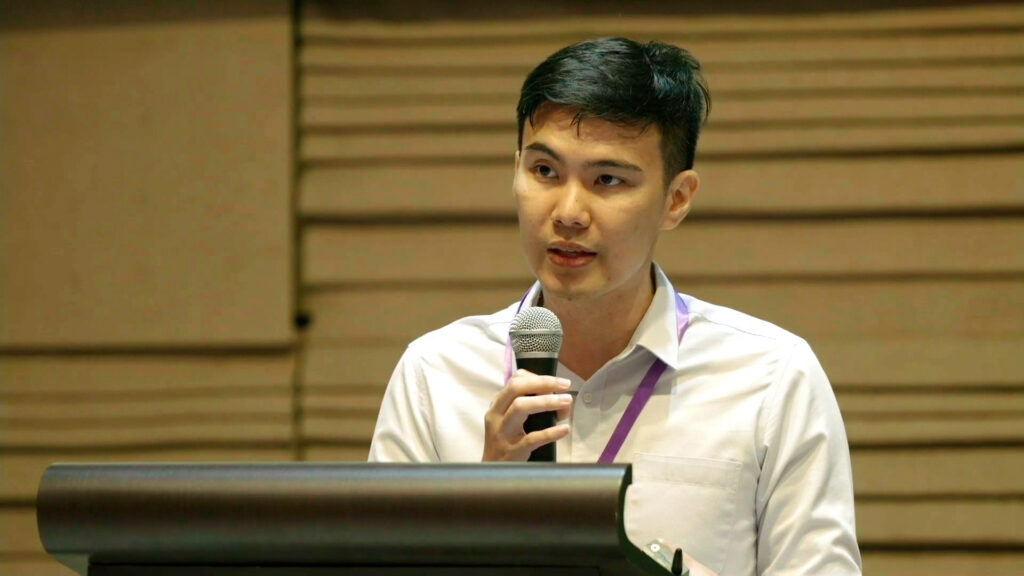
Daniel Lim, Cultivate’s research coordinator
Our researcher Daniel Lim shared the findings from Cultivate’s “Marriage, Family and Social Discourse” survey.
Covering 2,000 Singapore Citizens and Permanent Residents, the survey found:
- Most Singaporeans have positive views towards marriage, family and children.
- Fathers and mothers are deemed important for children,
- Contributions of grandparents in caregiving for grandchildren are strongly recognised.
- Divergence in attitudes among younger men and women (aged 18-34): Though majority of younger women still valued marriage, family and children, women in these age groups had less favourable views on these topics compared to their male peers.
People generally considered friendship and dialogue across controversial views to be possible, but significant tendencies towards self-censorship, shaming and ‘cancelling’ exist.
Marriage: “For Better or For Worse?”
Are attitudes towards marriage getting better, or getting worse? Our first panel of the day explored the role of marriage in society and why it matters.
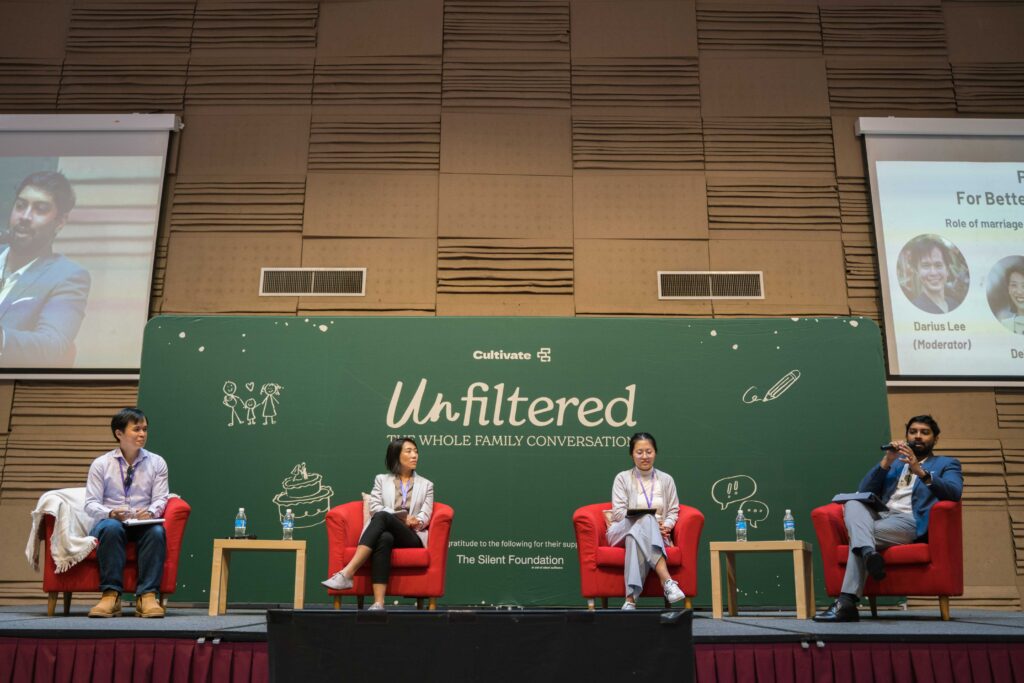
Panellist Delia Ng (CEO, Focus on the Family Singapore) drew attention to the intergenerational effects of divorce, citing a 2020 study by the Ministry of Social and Family Development, which observed that children with divorced parents were slightly less likely to marry, and more likely to divorce. She shared her experience of her own parents’ acrimonious divorce when she was young, and emphasised the importance of shaping the belief systems of young people towards marriage.
“We do need to consider how it might look like to strengthen marriages beyond just the number of people who get married; we need to look at the health and resilience of marriages.” – Delia Ng
Another panellist, young professional Dr Zhang Ludi highlighted three different kinds of perspectives she had observed among her friends. The first perceives marriage to be a “trap”, after observing their own parents’ unhappy marriages. The second changed their minds about marriage after being hurt in previous relationships, while the last group of friends are in stable and exclusive relationships, but felt unsure about committing to marriage.
“I believe that marriage is about commitment to a person, not a set of feelings, circumstances or how the person can benefit me… There are very few other social institutions that affirms the uniqueness of an individual to this level.” – Dr Zhang Ludi
Finally, Timothy Weerasekera (founder of online commentary Regardless.sg) made a case for why a government should care about marriage. He said that the government’s interest in marriage is not about love between adults, but in children – to ensure they are raised well.
“Those of us who are married can identify with the beauty of being bound to our ‘Number One Person’… but that is the icing on the ‘cake’. The ‘cake’ that we are dealing with is constituted of a man and woman coming together with complementary benefits for the sake of raising children in a permanent union.” – Timothy A. Weerasekera
He observed that much of the scepticism towards marriage today was because “we have too often seen the breakdown of marriage instead of the proper functioning and operation of marriage”.
Children: “The Parent Trap?”
With Singapore’s record-low fertility rate of 0.97 in 2023, attitudes towards children in Singapore are under challenge. Is parenthood a “trap”? On the other hand, should nations stop at nothing to raise fertility rates, or are there ethical constraints?
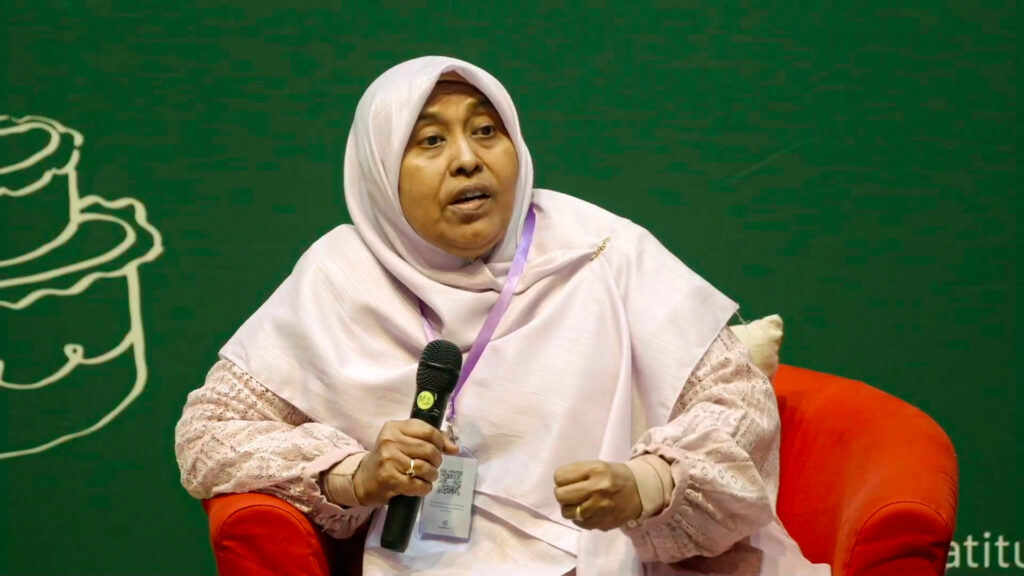
Mariam Alias, an educator and a mother of seven adult children, shared about her experience and perspective raising children.
In Mariam’s words, she raised her children in a “traditional” manner. The first 7 years of the child’s life is about raising them in a loving environment where they are happy at all times. The next 7 years are disciplining years for the children, and by the time they are 15 years-old, they should be able to handle various challenges in life. Finally, when they are 21, they become more like “business partners” to parents, in a consultative relationship.
“My kids grew up in an environment where they enjoyed being with each other, so they want lots of children.” – Mariam Alias
Dr Ng Liang Wei shared about how he was initially not keen on children, and was unfazed about not having any for years. Eventually, he rode along on his wife’s “enthusiasm” when they decided to adopt two children.
He acknowledged that children can be a “possible liability,” sharing from his past experience as a doctor in KK Hospital, where he saw how difficult it was to care for children with special needs. To him, it was important to be honest with such perspectives and feelings before being able to work through them.
He added that “children are also possibilities”.
“As parents, we need to appreciate that we have a role to mould our children, and they have a role to mould us.” – Dr Ng Liang Wei
Finally, “children need to be nurtured in reality”. Although his daughter experienced racism when studying overseas at an international school, he shared how it was likely that such experiences would occur elsewhere and guided her to develop resilience to be a “safe person” for others.
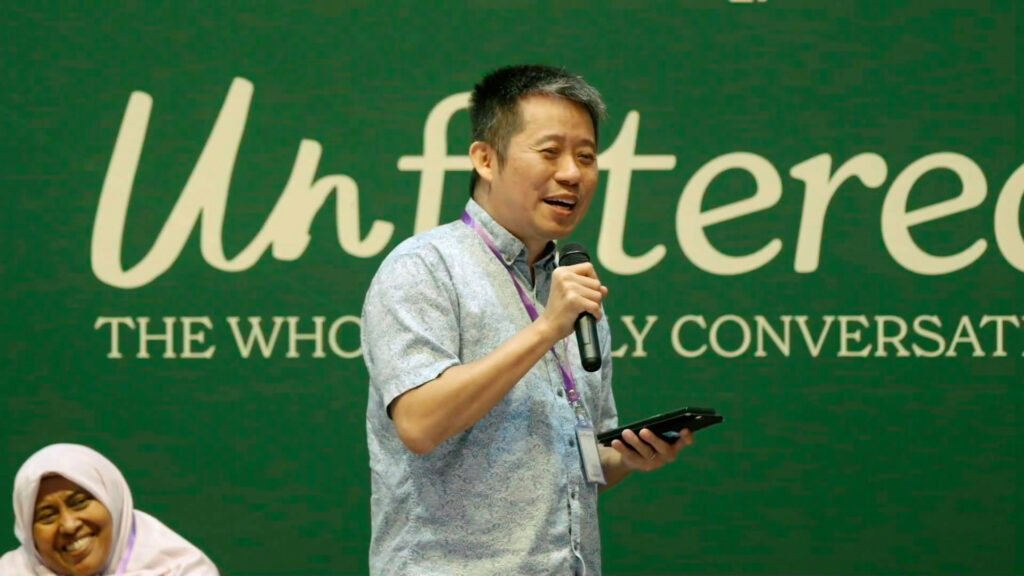
Given Singapore’s challenges with fertility, should all fertility options be pursued, or are there ethical considerations that need to be considered? Associate Professor (Dr) Tan Seow Hon discussed the controversial topic of surrogacy, which she defined as an arrangement where “a woman is pregnant on behalf of another woman”.
Three main ethical concerns surround surrogacy:
- The industry might involve unscrupulous brokers or women who are pressured into surrogacy.
- The metaphysical issue of “Who is more rightfully the mother of the child, the surrogate or the commissioning parent?”
- The objectification and commodification of the child and the woman, which is “highly insurmountable”.
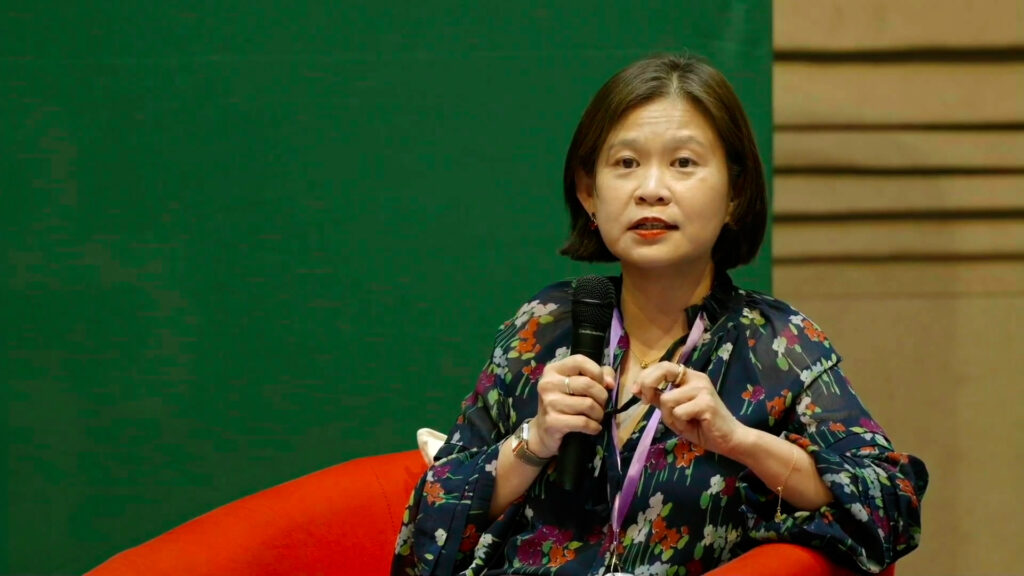
Intergenerational Bonds: “Generationally Speaking”
The last panel of the day discussed intergenerational bonds in society and grandparenting.
Associate Professor (Dr) Thang Leng Leng predicted that with our current demographic trends, Singapore would have a “beanpole family structure”, with many generations but few members in each generation.
“Grandparents are a very diverse group, with different physical abilities and capabilities, and in every stage, there can be ways for bonding with the generations.” – Assoc Prof (Dr) Thang Leng Leng
She emphasised the importance of creating shared spaces where different generations can interact. Children often become more open to their own grandparents after such interactions with other seniors.
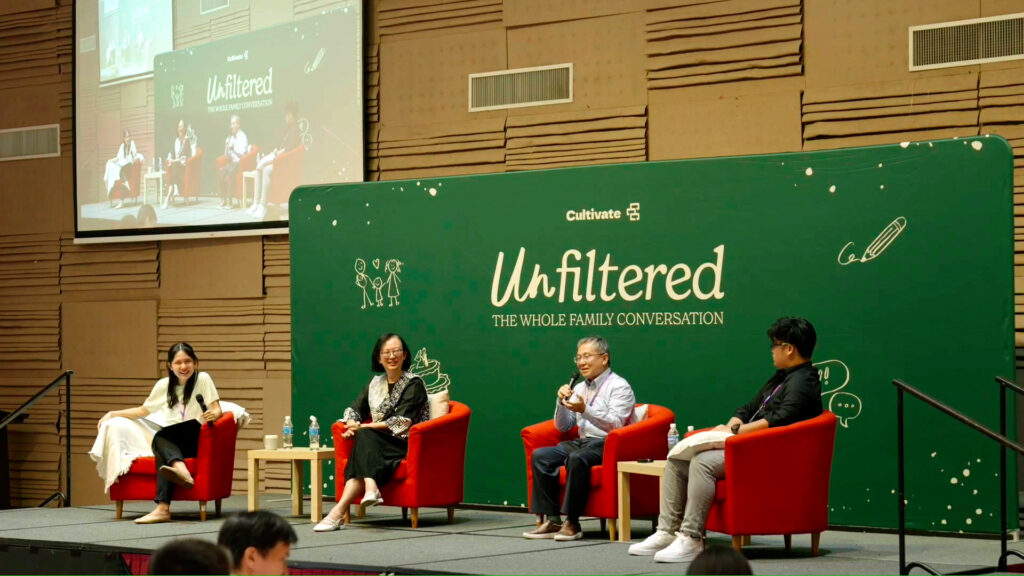
The next two speakers shared from their personal experiences in relation to intergenerational bonds.
Abdul Hamid, one of Cultivate’s directors, was raised by his single mother and grandmother. His grandmother was also a single mother who worked tirelessly for her family. She took care of Hamid’s education, gave emotional support, and taught him lessons about life.
Hamid shared about conscious efforts he made for his family to bond across generations, such as bringing his mother along to family outings, along with his wife and four children. Becoming a first-time grandfather a few years ago, he continued to have regular gatherings across generations.
“[With strong intergenerational bonds] we can rely on grandparents as caregivers, comforters, supporters, teachers, mediators and a unifying force.” – Abdul Hamid
Junior college student Ezekiel Tan spoke from his experience being brought up in a multigenerational household by his grandparents until he reached the age of eight. As his primary caregiver, his grandmother taught basic skills from childhood.
Although he began to dislike his grandmother’s “tough love” when he entered his teenage years, there was a turning point in their relationship when his grandparents were away for three months and he began to appreciate them more. There has also been a change in relationship dynamics, as Ezekiel would now help his grandparents with technology, such as helping to recover their Singpass passwords or ATM pins.
“My relationship with my grandparents definitely is special, and is a bond that has lasted for many years. It’s something that I have begun to appreciate both for its longevity and… for how it has evolved and changed.” – Ezekiel Tan
Soft-launch of Grander Together
Flowing from the intergenerational themes and messages, Cultivate soft-launched “Grander Together”, a new movement to equip and support intergenerational families.
Unveiling the logo of the movement, Peter Heng (one of Cultivate’s board members) recounted how he had shared it with his daughter who laughed and commented, “Dad, this looks like you!” He stressed, “I did not influence the design.”
As a grandfather and one of the founders of Grander Together, this was a topic close to his heart on a personal and societal level. He shared his hope for Grander Together to promote the benefits of grandparenting, strengthen intergenerational bonds and transmit enduring values.
“I would really encourage the grandparents and even all of you here who are not yet grandparents to be part of this Grander Together movement.” – Peter Heng
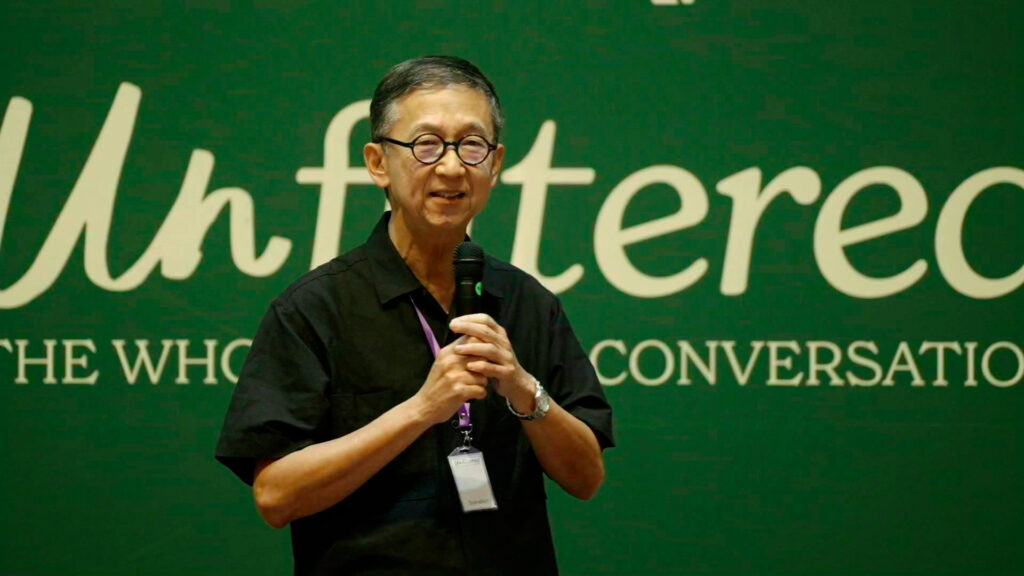
Conclusion
At the close of the conference, Cultivate’s Executive Director Darius Lee spoke about a wedding gift he received: the word ‘LOVE’ made out of wood. Though it looks like it is all in one piece, it had in fact been broken and repaired multiple times.
“I think that is a picture of what true love looks like. When things break down – and things often do break down – love does the hard work of putting things back together again.” – Darius Lee
Building strong marriages, nurturing children and cultivating intergenerational bonds requires us to put in the hard work for our nation to thrive.
